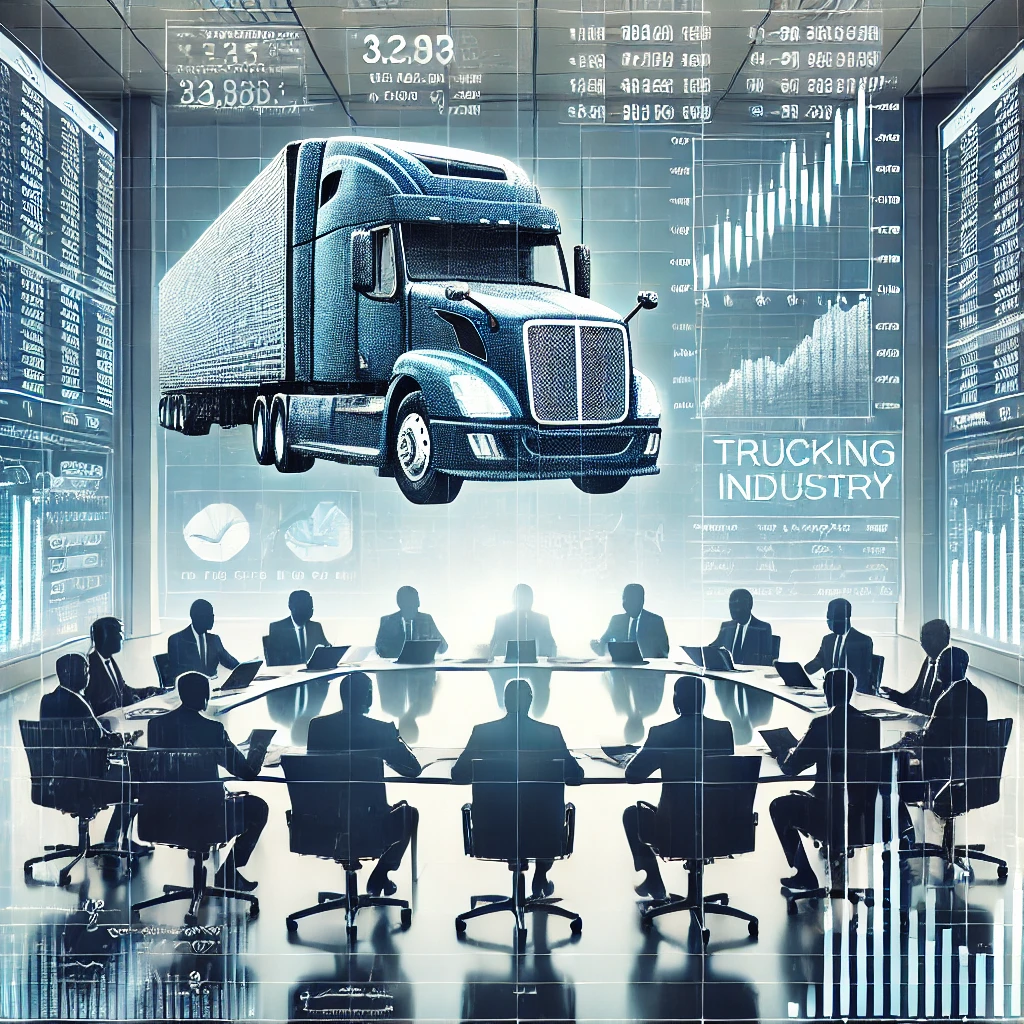Finding the Best Trucking Company to Work For

Understanding What Makes a Great Trucking Company
Before diving into your job search, it’s crucial to understand what qualities define best trucking company to work for:
- Safety Culture: A commitment to driver safety through training, equipment maintenance, and reasonable scheduling.
- Fair Compensation: Competitive pay rates, bonuses, and benefits that reflect the value of your work.
- Work-Life Balance: Policies that respect your need for home time and personal life.
- Career Growth: Opportunities for advancement and skill development.
- Modern Fleet: Well-maintained, up-to-date trucks equipped with the latest safety features.
- Positive Work Environment: A culture of respect, open communication, and driver appreciation.
- Financial Stability: A company with a strong financial foundation ensures job security and timely pay.
Key Factors to Consider
When evaluating trucking companies, pay close attention to these crucial factors:
- Pay Structure:
- Per mile rates
- Guaranteed minimum pay
- Detention pay
- Bonuses and incentives
- Benefits Package:
- Health insurance
- Retirement plans (401(k) with company match)
- Paid time off
- Life and disability insurance
- Home Time Policy:
- Frequency of home time
- Predictability of schedules
- Flexibility for personal events
- Equipment Quality:
- Age and condition of the fleet
- Truck assignment policies (dedicated or slip-seat)
- In-cab amenities (APUs, fridges, inverters)
- Training and Support:
- Initial and ongoing training programs
- Mentorship opportunities
- Support for new and experienced drivers
- Company Culture:
- Communication style with drivers
- Recognition and appreciation programs
- Diversity and inclusion initiatives
- Operational Efficiency:
- Quality of dispatch services
- Use of technology for route optimization
- Policies on deadhead miles and layovers
- Career Advancement:
- Opportunities for specialized routes or loads
- Path to becoming a trainer or moving into management
- Support for owner-operator transition
Researching Potential Employers
Thorough research is key to finding best trucking company to work for. Here’s how to gather information:
- Company Websites: Start with the official sites to understand their mission, values, and offered benefits.
- Online Reviews: Check sites like Glassdoor and Indeed for employee reviews, but take extreme opinions with a grain of salt.
- Industry Forums: Participate in trucking forums to get insights from current and former employees.
- Social Media: Follow companies on platforms like LinkedIn and Facebook to see how they engage with drivers.
- News and Financial Reports: For publicly traded companies, review annual reports and industry news for a broader perspective.
- Career Fairs: Attend trucking job fairs to meet company representatives in person.
- Network with Fellow Drivers: Reach out to drivers you meet at truck stops or through professional associations.
- Contact Recruiters: Don’t hesitate to call company recruiters with your questions – their responsiveness can be telling.

Top-Rated Trucking Companies and What Sets Them Apart
While individual experiences may vary, some companies consistently rank high among drivers. Here are a few examples (note that rankings can change over time):
- Maverick Transportation:
- Known for: Excellent training programs, modern fleet
- Standout feature: Emphasis on work-life balance
- Crete Carrier Corporation:
- Known for: Financial stability, driver retention
- Standout feature: No-touch freight policy
- FedEx Freight:
- Known for: Competitive pay, benefits
- Standout feature: Opportunities for local and regional routes
- Old Dominion Freight Line:
- Known for: Employee stock ownership program
- Standout feature: Focus on LTL shipments, often meaning more home time
- Estes Express Lines:
- Known for: Family-owned business with a personal touch
- Standout feature: Extensive terminal network for varied route options
Remember, the “best” company can differ based on your personal preferences and career goals. What works for one driver may not be ideal for another.
The Application and Interview Process
Once you’ve identified promising companies, here’s how to navigate the application and interview process:
- Prepare Your Documents:
- Updated resume highlighting relevant experience
- Clean driving record (MVR)
- CDL and any additional certifications
- References from previous employers
- Online Application:
- Fill out applications thoroughly and accurately
- Tailor your responses to showcase how you meet their specific needs
- Follow Up:
- If you don’t hear back within a week, reach out to the recruiter
- Show initiative and genuine interest in the position
- Phone Screening:
- Be prepared to discuss your driving history and career goals
- Have questions ready about the company and position
- In-Person or Video Interview:
- Dress professionally, even for video interviews
- Be punctual and courteous
- Share specific examples of your skills and experience
- Ask thoughtful questions about the company culture and expectations
- Road Test or Skills Assessment:
- Some companies may require a driving test
- Stay calm and demonstrate your professionalism and skill
- Background Check and Drug Screening:
- Be honest about any past issues
- Follow all instructions carefully for drug screenings
Evaluating Job Offers
When you receive an offer, take time to evaluate it carefully:
- Compare Total Compensation Packages:
- Look beyond the base pay rate
- Factor in bonuses, benefits, and potential for raises
- Understand the Fine Print:
- Read the entire contract, including any non-compete clauses
- Clarify any points you don’t understand
- Consider Long-Term Potential:
- Does this position align with your career goals?
- What growth opportunities does the company offer?
- Assess Work-Life Balance:
- How does the proposed schedule align with your personal needs?
- What’s the policy on home time and time off?
- Evaluate Company Stability:
- Research the company’s financial health and industry reputation
- Consider the long-term outlook for their sector of the trucking industry
- Trust Your Instincts:
- Reflect on your interactions during the hiring process
- Consider whether you felt respected and valued
Don’t be afraid to negotiate or ask for time to consider the offer. A good company will understand the importance of this decision.

Making the Transition
Once you’ve accepted an offer, prepare for a smooth transition:
- Give Proper Notice: If currently employed, provide appropriate notice to your current employer.
- Complete Paperwork: Fill out all necessary new hire documents promptly.
- Arrange for Training: Understand and prepare for any required orientation or training programs.
- Plan for Your First Assignments: Discuss your initial routes or responsibilities with your new dispatcher.
- Set Up Direct Deposit: Ensure your pay will be processed correctly from day one.
- Familiarize Yourself with Equipment: If possible, get acquainted with the type of truck you’ll be driving.
- Connect with Colleagues: Reach out to fellow drivers or join company forums to start building relationships.
Thriving in Your New Role
To make the most of your new position:
- Embrace the Learning Curve: Every company has its unique systems and culture. Be patient with yourself as you adapt.
- Communicate Effectively: Keep open lines of communication with dispatch, trainers, and management.
- Prioritize Safety: Always adhere to safety protocols, even if it means refusing an unsafe load.
- Maintain Professionalism: Your attitude and performance can open doors for future opportunities.
- Take Advantage of Benefits: Utilize health insurance, retirement savings plans, and other perks.
- Seek Feedback: Regularly check in with your supervisor about your performance and areas for improvement.
- Stay Informed: Keep up with company announcements and industry news.
- Build Relationships: Network with fellow drivers and staff. A strong professional network can be invaluable.
The Future of Trucking: Technology and Innovation
Best trucking company to work for are often at the forefront of industry innovations. Stay informed about:
- Electric and Autonomous Vehicles: How is the company approaching these emerging technologies?
- Blockchain in Logistics: Are they implementing blockchain for improved transparency and efficiency?
- AI and Machine Learning: How are these being used for route optimization and predictive maintenance?
- IoT and Telematics: What smart technologies are being integrated into their fleet management?
Companies investing in these areas may offer more stable, forward-thinking career opportunities.

How Linbis Logistics Software Enhances Driver Experience
When evaluating potential employers, consider whether they use advanced logistics software like Linbis. This can significantly improve your day-to-day experience as a driver. Here’s how Linbis Logistics software benefits drivers:
- Efficient Load Management:
- Easy access to load details and updates
- Streamlined communication with dispatch
- Reduces waiting times and improves productivity
- Paperless Documentation:
- Digital storage of important documents (BOLs, PODs)
- Reduces administrative burden on drivers
- Ensures compliance and easy access to records
- Real-Time GPS Tracking:
- Accurate ETA predictions
- Helps avoid traffic and road closures
- Improves safety with route guidance
- Electronic Logging Device (ELD) Integration:
- Simplifies hours of service tracking
- Ensures compliance with regulations
- Reduces paperwork and potential for errors
- Expense Management:
- Easy logging and submission of expenses
- Faster reimbursement process
- Helps with personal tax record-keeping
- Performance Metrics:
- Provides insights into individual performance
- Helps identify areas for improvement
- Can be tied to bonus programs for top performers
- Mobile App Access:
- Access to all features via smartphone or tablet
- Allows for updates and communication on the go
- Improves work-life balance with better information flow
- Maintenance Scheduling:
- Reminders for routine vehicle maintenance
- Helps prevent breakdowns and safety issues
- Reduces stress related to vehicle upkeep
Companies using advanced systems like Linbis demonstrate a commitment to efficiency, driver satisfaction, and technological advancement – all indicators of a potentially great employer in the trucking industry.
Conclusion
Finding the best trucking company to work for requires careful research, self-reflection, and due diligence. By considering the factors outlined in this guide, thoroughly researching potential employers, and evaluating offers holistically, you can find a position that not only meets your immediate needs but also supports your long-term career goals in the trucking industry. Remember, the best company for you is one that values your skills, supports your well-being, and provides opportunities for growth and success in this vital and evolving field.
